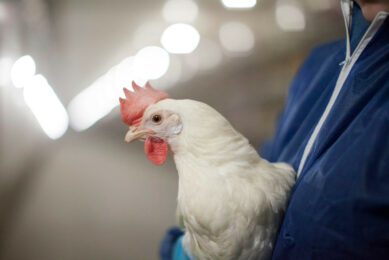Organic acids vital in control salmonella
UK poultry salmonella specialist Dr Lin Wylie from Kiotechagil has emphasised the critical need to use organics acids in the battle to control salmonella in South American poultry farms.
Speaking to poultry producers, vets and nutritionists in Peru, Dr Wylie said,
“the organic acids […] assist in the acidification of the bird’s entire
digestive tract providing a controlled release of acids, to assist the
development of beneficial gut microflora.
“Protected organic acids are
capable of resisting immediate digestion in the intestine and can help control
Gram negative enteropathogens from all sources.”
In a study of free-range
chickens in Peru, the frequency of Salmonella positive isolates was
54%.
The transmission of salmonella to humans by contaminated poultry
products is an important public health issue and can be particularly serious in
children and the elderly.
Salmonella can be passed from poultry to humans
via eggs or meat and it is consistently among the leading bacterial causes of
food-borne human illness.
Poor growth
“Salmonella infection in
poultry adversely affects gut health and the absorption of nutrients by the
chicken resulting in poor growth performance or reduced egg production” added Dr
Wylie.
“Therefore the need to implement effective control measures to
reduce the incidence of salmonella infections in chickens is an urgent priority
for the industry.
“Control of salmonella at the feedmill alone will not
eliminate salmonella from post manufacturing contamination from a variety of
sources including insects, water supplies, horizontal transmission within flocks
or from farm workers.
“The only thorough approach is to use protected
acids that are safe to use, protect the feed from recontamination and continue
to work from the feedmill through to the hindgut of the bird.”
For
regular updates on feed news subscribe here to our free
newsletter











